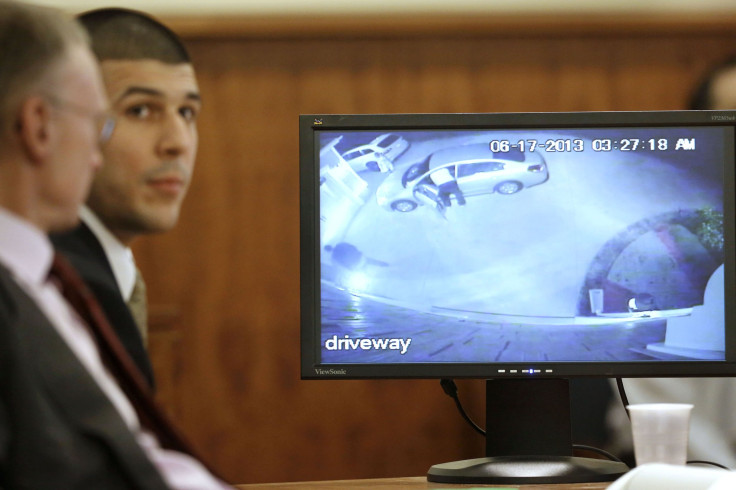Aaron Hernandez Trial: Former NFL Star’s DNA Links Him To Odin Lloyd's Killing, Prosecutors Say

Prosecutors in the murder trial of Aaron Hernandez stated Thursday that the former New England Patriots tight end’s DNA was found on a marijuana cigarette shared with his friend Odin Lloyd, linking him to the killing of the semi-pro football player in 2013. Hernandez is accused of killing Lloyd, and could get life in prison if convicted.
Jurors on Thursday heard the opening statements, which gave insights into the prosecution’s case against Hernandez, 25, who is charged in the shooting death of 27-year-old Lloyd, The Associated Press reported. The physical evidence provided by the prosecutors also included footprints at the crime scene. Lloyd, who was dating the sister of Hernandez’s fiancée, was found dead at an industrial complex less than a mile from Hernandez's home in North Attleborough, a town in Bristol County, Massachusetts.
“He had the world at his feet,” Hernandez’s attorney Michael Fee, reportedly said. “In June of 2013, Aaron was planning his future, not a murder.”
Bristol County prosecutor Patrick Bomberg gave details into a “path” to murder in his opening statement, stating that Hernandez shot Lloyd six times, while Fee argued that there was no way to prove the claim, and that police and prosecutors had conducted a “sloppy and unprofessional” investigation.
During the first day of trial, prosecutors also revealed a video from Hernandez’s home surveillance system to help support their claim that the former NFL player killed Lloyd. Prosecutors had previously claimed that Hernandez had tampered with the camera but investigators were successful in retrieving photographs from nearly 14 cameras. However, on Thursday, Fee argued that his client did not tamper with the footage.
"The evidence will show that if Aaron Hernandez wanted to destroy the recordings on that video system, he could have," Fee said, according to ABC News. "But he did not, because he had no reason to."
Fee also reportedly said that the fact that Hernandez was at the scene is not enough to convict him in the case. “Mere presence is not enough. We can’t be convicted of a crime just because we hang with the wrong people or are in the wrong place,” he reportedly told the jury.
© Copyright IBTimes 2025. All rights reserved.





















